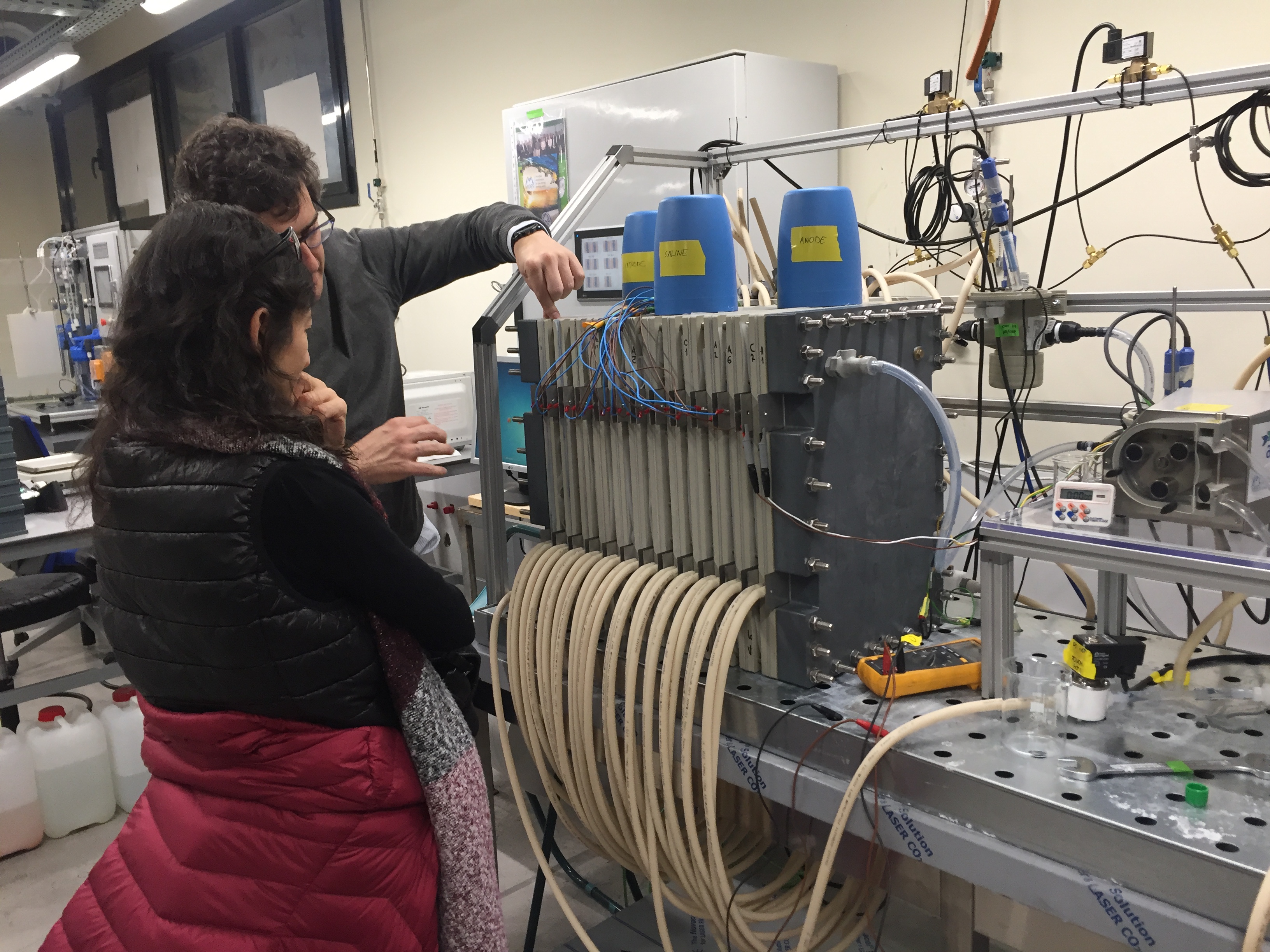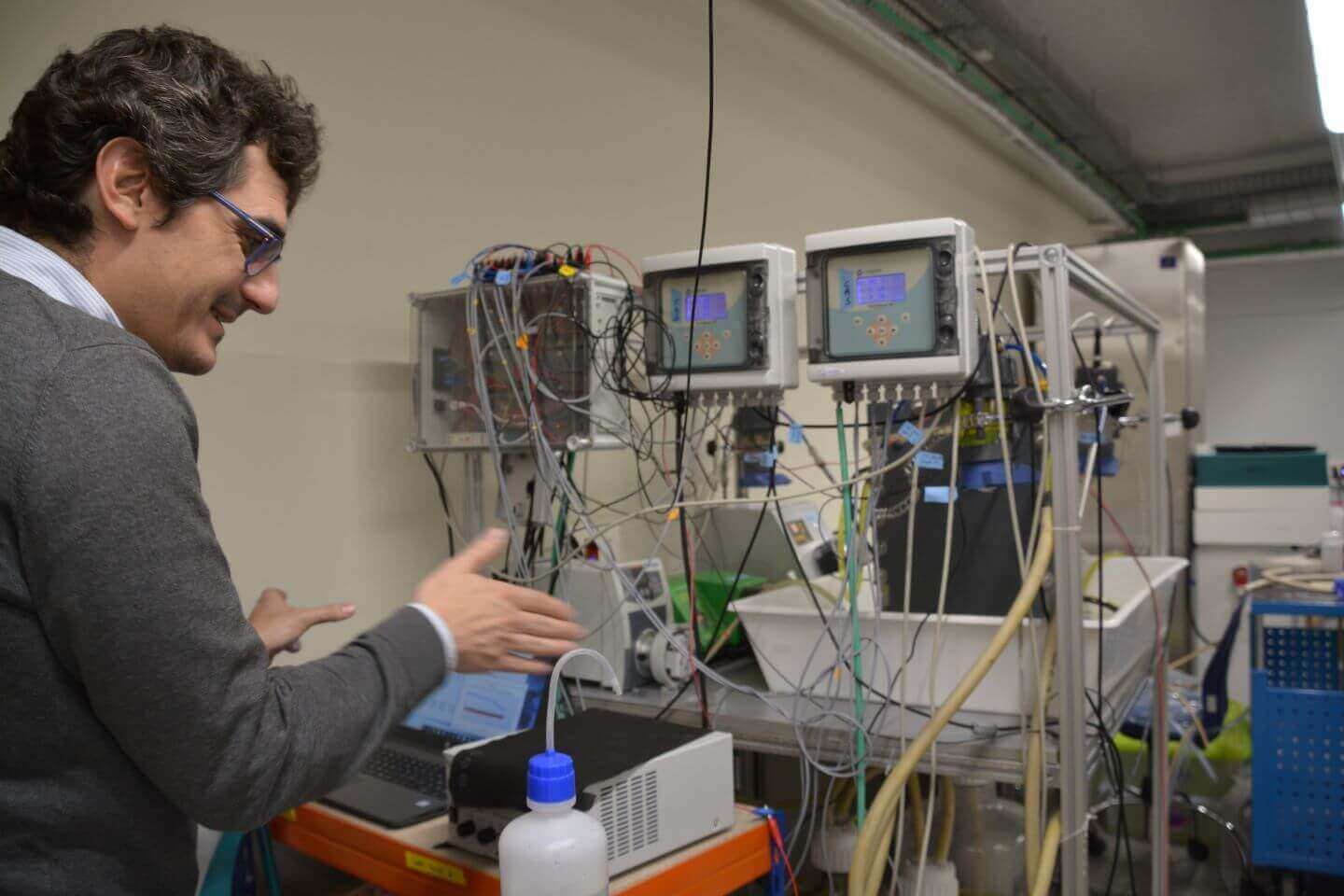That’s what Dr. Juan Manuel Ortiz does with his marine microorganisms; he is learning how to create a sustainable desalination process that consumes less fossil fuels and more renewable energy, and may even generate clean energy.
The application of biotechnology in desalination processes to obtain drinking water may seem strange, but it’s real. Dr. Ortiz, a researcher at IMDEA Agua (Community of Madrid), with an undergraduate degree in Chemical Engineering from the Universidad de Alicante (2002) and a doctorate from the same university (2009), who joined IMDEA Agua in 2015, focuses his research on the development of microbial electrochemical processes to treat urban and industrial wastewater and sustainable desalination systems.
Ortiz was the lead researcher on the BioDEs project (R+D+i projects for young researchers, 2015 edition; Ministry of Science, Innovation and Universities), and has participated in 11 national and four European projects. BioDEs focuses on the study of sustainable desalination using biotechnology.
Conventional desalination through reverse osmosis requires tremendous energy. Consequently, it is associated with elevated CO2 (greenhouse gas) emissions when fossil fuels are used to carry out the desalination process. This technology is possible where energy resources are available. However, in countries where electricity is scarce, biotechnology-based desalination systems could be a sustainable option for obtaining drinking water. “Microorganisms in the sea offset changes in salinity inside and outside cells. If, for example, there is a sudden change in salinity outside the cell, macromolecules are generated to offset the osmotic pressure inside, thus preventing water from leaking into the exterior. This process is known as osmoregulation,” Ortiz explains. They have the ability to filter water and generate biomass, like Dunaniella salina algae. “Microalgae needs CO2 and sunlight to grow; it also performs osmoregulation. Rather than emitting CO2, it consumes it in order to grow and reproduce. In other words, as osmoregulators, they can desalinate seawater using CO2 and sunlight.” They live in microbial desalination cells.
The biomass produced could be used as animal feed, fertilizer, or a value-added compound for the chemical or pharma industries (currently under examination at IMDEA Agua).

IMDEA Agua’s Bioe group, of which Dr. Ortiz is a member, also studies how microorganisms with the ability to produce small electrical currents when degrading waste can be used in sustainable desalination processes through microbial electrochemical processes. “When the organism digests wastewater it generates energy in the process. This not only creates energy, but water for industrial and agricultural use,” Ortiz points out.
“We can insert electrodes into a bioreactor and connect, for example, an electric car battery. The organisms use the electrical current to communicate with each other and, at the same time, they clean the water. It is the union of biotechnology and applied electrochemistry. It’s like a huge biopile of microbial fuel,” says Ortiz. In other words, we can treat wastewater in a bioreactor and generate electricity and irrigation water. The miracle of nature.
This technology is in the research phase and, should it obtain positive results, it will be implemented on an industrial scale in the years to come.
